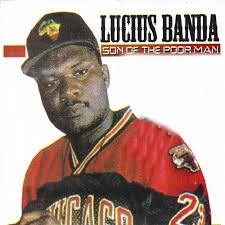Entertainment
Keeping Lucius Banda’s music flames alive

By Grace Thipa for Times
Fifty years and counting, Lucius Banda has really put his back to all manner of distractions so that he seems to have welcomed, faced, and shrugged off competition as one who faces the concourse fully prepared.
He is not only set to clock 35 years in music this year, having already reached the unattainable feat of releasing 20 albums, but has introduced his son, Mr Zembani, to music.
Working with others, family members or not, is not a new thing to him, actually. For instance, when he released the song ‘Bwerera’ in 2019, he was appreciating the works of another Malawin musician, the United States-based Maskal, who composed the love song premised on a stupid man who deserts a wife in the hope that desperation will bring the woman home— meaning the man’s heart.
As it were, not all wishes materialise. It turns out to be a miscalculation on the part of the fallible man.

The influence the inimitable Banda has exerted on the local music scene lies both in his origins— as someone born in a music-loving family that counts the likes of Sir Paul Banda among its fold— and his temerity to adapt to changing national moods. “It’s these things that have motivated me and helped me remain relevant. It’s not the money at all; it’s my love for music, and my commitment to music.
“I have never looked at music as, merely, a source of income. Rather, it is something I love to do, and shall continue to do. You may wish to remember that, during the time I was Member of Parliament, I continued to compose songs and hold live performances,” Banda says.
Lucius says, apart from embracing the impulse to identify with the voiceless and marginalised, the fact that music is a global language has helped him compose songs that cater for the emotional needs of members of a diversified audience, thereby giving life experiences the autonomous meaning of value irrespective of context. No wonder that, as expected, people of various backgrounds and age groups have nodded assent to his compositions.
Indeed, for 34 years – it will be 35 years and counting when we reach a certain mark this year— Malawians have laughed as his levity spreads, and mourned with his voice whenever he has, through his 20 albums and counting, exercised his mind’s capacity to alter human moods. Music lovers have, many a time, turned their heads towards the stage and appreciated, at the sight of Lucius performing live, whence the merriment springs.
The musician has, since day one, had no time to relax on middle ground, and maintains that artists still have a lot on their plate to change many facets of life.
When Lucius set out on a music journey that has become his life-long pursuit, he was known for his hard-biting compositions in which, as a lone soldier, he took on the powers-that-be for the sake of the voiceless. Hits such as ‘Mabala’, ‘Mizimu’, ‘Mzimu wa Soldier’, ‘Adzatimva’ and ‘Take Over’ bear testimony to the militancy that characterised his music.
“Those songs were composed to remind Malawians about where we are coming from, how to live harmoniously with fellow human beings, how to keep in touch with the governed and to remind people about God’s love towards human kind,” Banda says.
His pioneering songs concentrated on condemning the old excesses of power because, in his view, it becomes a tragedy of enormous proportions when people lose their sense of history and belonging. In order to control the present, he enthuses, one needs to be steeped in the past, and compares failure to learn from the past to losing some vital dimension of one’s intelligence
.
Today, while politics still dominates the theme, his songs have also stretched to themes of love, religion, culture, among others. The emergence of a new generation of urban musicians— the likes of Lulu, JB, Piksy, Dan Lu, Issu— has also forced the best out of the Balaka-based musician. In those early years, Lucius, along with artists such as Paul Banda, Charles Sinetre, Cos Chiwalo, Charles Nsaku, among others, gave prominence to the so-called Balaka Reggae.
Today, however, the musician has adapted to changing music tastes by sailing with the wind, but without losing his original touch of maturity, surprise and constructive criticism. “I am into every genre now,” Lucius says. But, if love and transitional sounds have become the twin roots of his music now, his knack to take on society’s privileged, although a little withered, has not died completely.
The album, if any, that represents Lucius’ ability to adapt to everything life throws at him is, probably, Time. Everything hinges on time. The album Love and Hate might have been released after Time, but Time is timeless. Time was his 17th album. “Everything occurs according to time— the set time, to be specific. That is why we say there is time for everything,” Lucius says.
The album, replete with 15 tracks, also features international musicians such as South Africa’s Hugh Masekera in a move Lucius described as a step towards consolidating inroads made on the international scene. The other one featured is Tutukani Xcele.
This is not just a gesture; it is symbolic of Lucius’ wish to grow as big internationally as he has done locally. Being Presidential Adviser on Youth is also the fruit of time. Time; everything depends on time.
**Story originally appeared in Times Media***






